What Should You Do If Your Senior Dog Is Panting at Night
01.06.2022.
As your dog gets older, he will face many different health concerns. We all want what is best for our furry friends and will do anything to keep them healthy. If you notice your senior dog starting panting at night, it is natural to be concerned.
Under normal circumstances, panting is a sign of regulating body temperature after exercising or when they feel hot. Still, if you notice your senior dog panting at night when he didn't have any particular exercise, and it's not hot, that can be a concerning sign.
Senior dogs can experience panting at night more than younger dogs, leading to many different health concerns.
What is panting?
Dogs regulate their body temperature by panting. You will most likely catch your dog panting after exhausting exercise. Panting is nothing to be concerned about if it happens in controlled situations at a young age.
RELATED: Dog Panting - All You Need To Know
Panting in senior dogs
Senior dogs can start panting because of their lower stamina, but they may also experience panting because of health problems and illnesses.
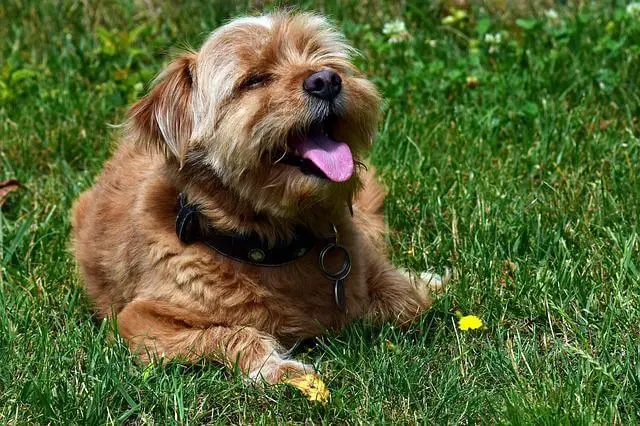
In most cases, after your senior dog starts panting, it will be accompanied by other changes in behavior.
Reasons why senior dogs pant at night
There can be many different reasons why would your senior dog suddenly starts panting at night. Some can be natural, while others can indicate serious health problems.
1. Anxiety
Some dogs tend to experience more anxiety as they get older, especially at night. Changes in their health and cognitive functions can confuse them, and stress will follow. Other dogs can experience anxiety if they sleep alone or in the dark.
To calm your dog, you can provide them with moderate exercise during the day, massage your dog, use mental stimulation, and give your dog calming dog treats.
RELATED: Separation Anxiety In Dogs - How To Stop It
2. Pain
As they age, dogs will experience more problems with their joints, bones, and teeth. If your senior dog starts panting suddenly, pain can be the main problem. If you don't know how to check your dog, it is advised to consult with your vet and take your dog for a quick check-up.
Once you find out what causes pain for your senior dog, your vet can prescribe medications to suppress pain.
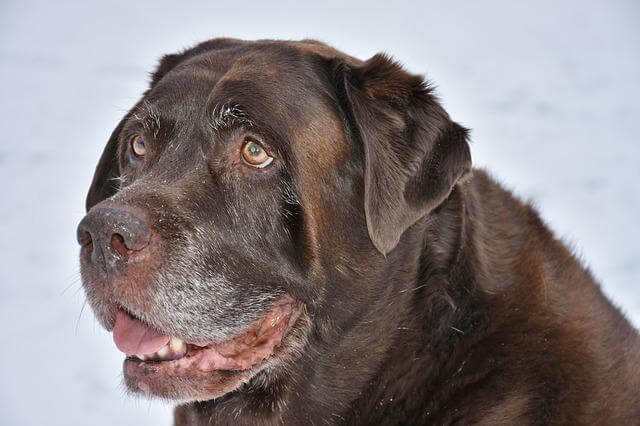
RELATED: Pain Relief for Dogs: Natural & Safe
3. Respiratory problems
If you catch your dog having difficulty breathing while experiencing panting, that can mean that your dog has respiratory problems. Your dog can also experience coughing and lethargy. This is a severe health problem, and you should immediately contact your vet and take your senior dog to the clinic.
4. Cushing's disease
Cushing's disease is a "condition in which the adrenal glands overproduce certain hormones." In other words, your dog can start producing more stress hormones that can cause panting at night.
Other symptoms of Cushing's disease besides panting are:
- Coat thinning and hair loss
- Skin infections
- Enlarged abdomen
- Increased thirst
- Increased appetite
- Increased urination
- Decreased activity
To treat this problem, you must take your dog to the vet so he can do various tests, including a blood test. Without medications, this problem will only get worse.
RELATED: Cushing's Disease In Dogs: What You Need To Know
5. Heart problem
With older age, dogs are also prone to various cardiovascular diseases. This is a severe health problem, but many treatment options will help your dog, increasing the dog's life quality.
6. Chronic illness
Chronic illness can also be why your senior dog pant at night. If you change your dog's routine, add new medication to their diet, or cause any other changes in their life that can lead to panting.
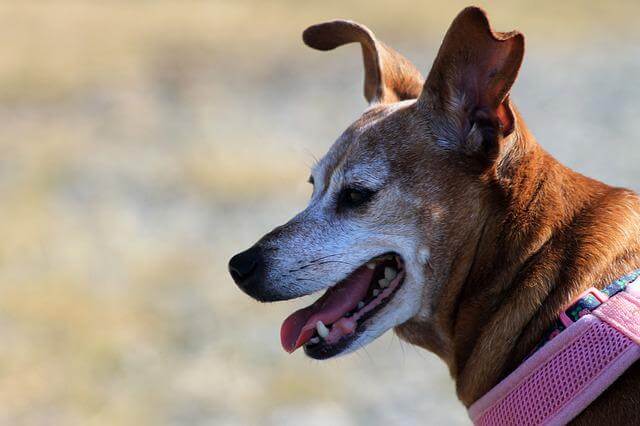
This is not a life-threatening state, but you should speak to your vet and find a way to help your dog.
How to prevent my senior dog from panting at night?
There are a few steps you can take to ensure your senior dog lives a quality life and prevent him from panting.
1. Calm your dog
Reducing stress levels for your dog and creating a calming environment can lead to your dog having a good, healthy sleep at night. Try using calming treats for your senior dog to get him to relax.
RELATED: The Best Calming Treats for Dogs [review]
2. Provide your dog with exercise
Regular moderate exercise can do wonders for your senior dog. Take your dog for walks, provide a dog with mental stimulation, or take the dog to the dog park. Allow him to burn his energy at his own pace without forcing too much exercise.
3. Always provide a cold environment for your dog
Senior dogs have a more challenging time withstanding the heat, and because of that, you should always provide your old dog with fresh, cold water, shade and not force him to be active during the hottest part of the day.
RELATED: Best Dog Cooling Mats for Summer
Conclusion
Catching your senior dog panting at night, you should take it seriously and always find a reason why it's happening. Always contact your vet and ask him for advice, and if your think there is a medical problem, take him for a check-up. If you take care of your dog, he can lead a happy and healthy life.
World Dog Finder team

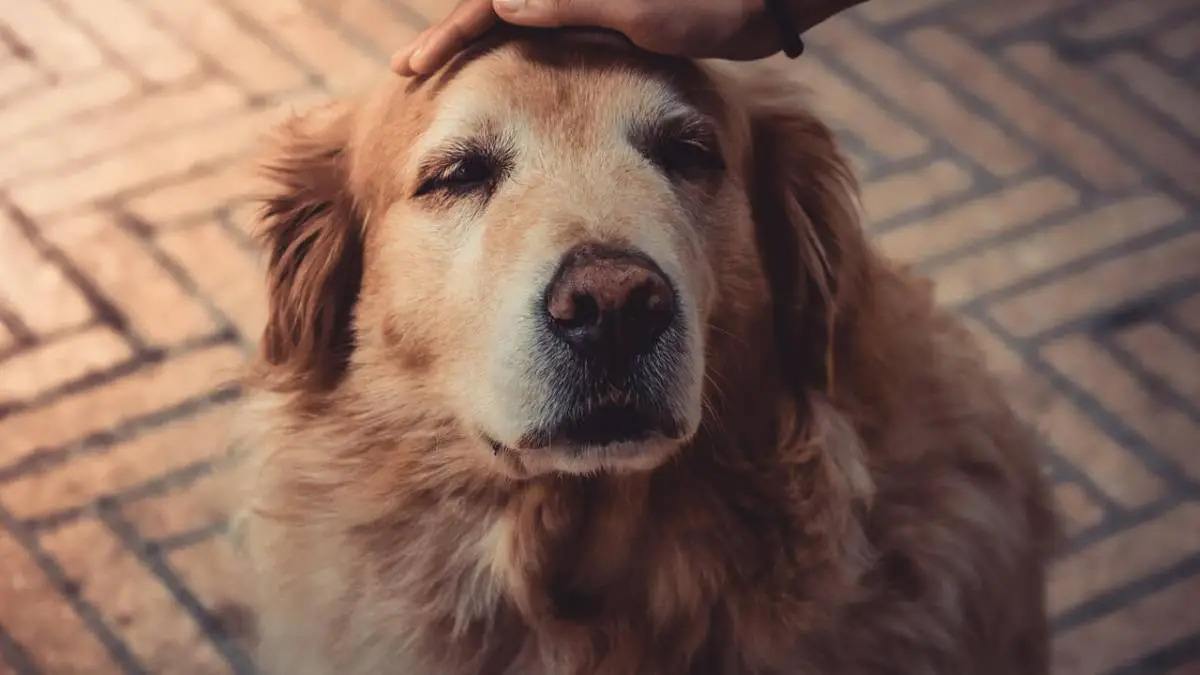
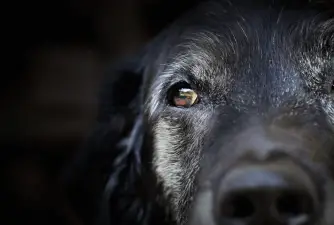
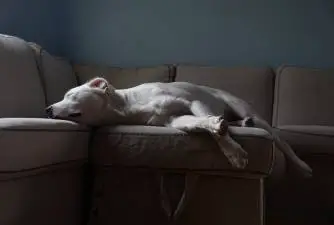
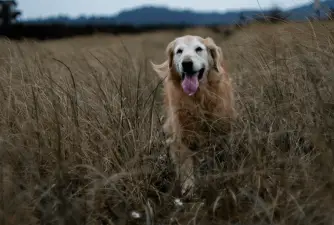
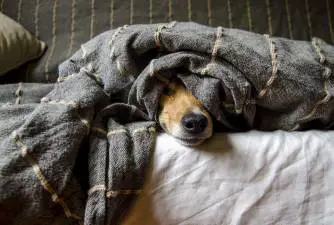

Share